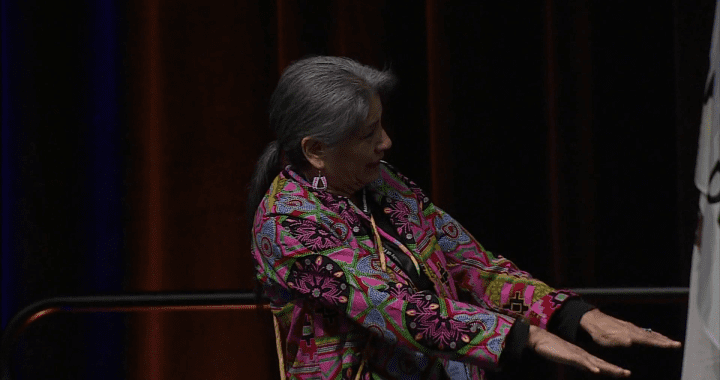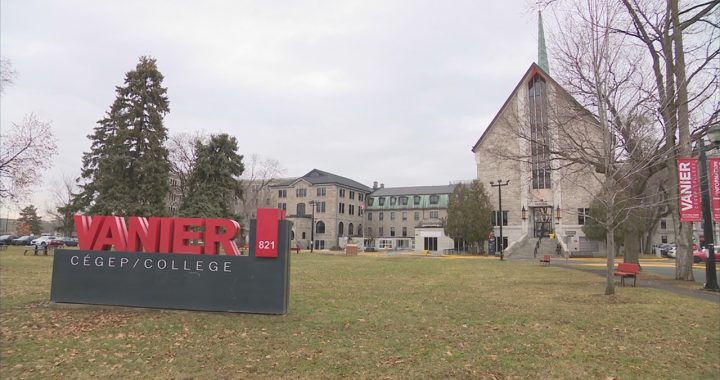A month following the shooting of twins Joshua and Garnet Papigatuk in Salluit, Nunavik in northern Quebec, Montrealers took to the streets to demand for accountability.
Protesters took to the streets chanting, “Justice for Joshua, justice for twins.”
“I’m here to protest against police brutality in Nunavik in light of my cousin’s death… and to really bring attention to the epidemic that we’ve got going on,” said Courtney Papigatuk, the cousin of the twins and organizer of the Montreal protest on Nov. 25.
Joshua Papigatuk was shot and killed by Nunavik police on Nov. 4. His twin brother Garnet was medevaced to hospital in critical condition.
“We have rookies going up, young, young cops, who have no cultural knowledge of Inuit,” said Courtney Papigatuk. “[Police] don’t know how to deal with them and so they shoot.”
About 50 people joined the protest.
Joshua Papigatuk is the 13th Indigenous person to die while interacting with police since Aug. 29.
Mothers stand in solidarity
A small group of mothers who have lost their children to police brutality attended the protest in support of the Papigatuk family.
“Reconciliation starts when they acknowledge the problem,” said Martha Martin. Martin’s daughter Chantel Moore was killed during a police wellness check in 2020. Five months later, her son Mike Martin died by suicide while in custody.
“When you look at all these senseless killings, they’re killing us out in the open,” said Martin. “When does it stop? When does the government get involved?”
Claudette Beals-Clayton, mother of Regis Korchinski-Paquette, was also in attendance. Korchinski-Paquette died during a wellness check in Toronto in 2020.
“[Police will never be held accountable for anything and this is where we have a problem at, and this is why the whole community needs to start standing up for us,” said Beals-Clayton. “This is a fight on our hands.”
Mistrust in BEI investigation
Protests were also hosted in Salluit and other towns across Nunavik in the first few weeks following Joshua’s death.
Salluit resident Donald Michael Cameron told APTN News there has been tension between police and Nunavummiut since the shooting and in recent years.
“In the past, there was a lot of cooperation, a lot of respect between each other – between the people and the police,” said Cameron. “Over the years something’s happened where … interactions with police have become distant.”
Cameron said it didn’t always used to be this way.
“In the past police officers would interact with the children on the streets, for example, play street hockey, play air hockey at the arena, and now it’s more [tense], more clashing for some reason,” said Cameron.
He said there’s also a strong cultural disconnection and language barrier, as many of the officers are coming from outside the community and do not speak Inuktitut – only English or French.
The Bureau des enquêtes indépendantes (BEI), the organization that investigates when members of the public are harmed by police, said in an email to APTN it could not provide a statement on the shooting as it is an ongoing investigation.
Cameron said there is mistrust towards the BEI in Nunavik.
“The BEI came in days later to do their investigation and they were there for a little over 24 hours and then they left the community,” he said. “There was no information given to us, other than the BEI is coming to town, if you were a witness, please come forward and talk to the BEI.”
The BEI said these investigations typically take six months.










